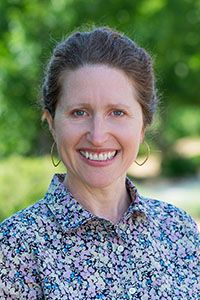Dr. Su's Blog
How Much Sleep Do We Really Need?

With the preponderance of electronic devices, caffeine, longer work days, and alarming news flooding our airwaves and inboxes, it is no wonder that insomnia is on the rise. As a primary care provider, many of my patients do not get a full 8 hours of sleep, and indeed recent statistics cite that 1/4 of Americans have insomnia, and 1/3 are getting less than 6.5 hours of sleep. Unfortunately, not getting enough sleep has ramifications that stretch far beyond feeling poorly the next day. As Matthew Walker, PhD, author of Why We Sleep, and the very engaging guest on a 3-part series of podcasts by Peter Attia (available on iTunes), states, that “like water from a burst pipe in your home, the effects of sleep deprivation will seep into every nook and cranny of biology”. (1)
Let’s briefly detail how our systems are affected by poor sleep:

In 2011, researchers from the Netherlands reported on a 10-15 year study of over 20,000 men and women. Those with the shortest sleep (<6 hours), who also had poor quality sleep (not just short), had a 63% higher risk of cardiovascular disease and a 79% higher risk of coronary heart disease (clogged coronary arteries) (2). I read this and thought of the traditional Mediterranean cultures who eat diets higher in fat than in the US, but also have siesta naps. Perhaps their increased sleep negates some of the cardiovascular risk of higher-fat diets? A 2007 study of over 23,000 people found that those who “systematically napped” (I love that phrase) had a 37% lower coronary mortality (3). Indeed, as the Greeks adopt a more typical Western workday, with no siesta, men who do physical labor have seen an increase in cardiovascular events by 65%. Sleep duration of under 7 hours is also correlated with increased risk of high blood pressure, heart attack, and stroke. Seeing as cardiovascular disease is the #1 cause of mortality in the US, we need to be looking beyond cholesterol medications.
Also, when we are don’t get enough sleep the beta cells of the pancreas become less sensitive to a rise in blood sugar and therefore secrete less insulin. This means that our blood sugar becomes elevated. Simultaneously, the cells that should be absorbing that blood sugar are less responsive to the insulin that does get excreted, and they require twice as much insulin to stimulate absorption.

When our blood sugars are running high due to insulin insensitivity, our cells are actually starving because the glucose is not reaching them, so we eat more to satiate that physiological hunger. Unfortunately, this leads to weight gain. Compounding the tendency to gain weight is the fact that when we are underslept the more primitive areas of the brain, such as the amygdala, begin to affect our food choices. With even an hour less sleep we are more likely to eat “hedonistic” foods with higher carbohydrates and more calories. If poor sleep is a chronic issue, and someone is consistently getting 6 hours of sleep, then even adding 250 extra calories per day equals an added caloric burden of 91,000 extra calories per year! And with less sleep we have increased levels of the hormone grehlin, which signals hunger and makes us hold onto our fat, and decreased levels of leptin, which allows us to feel satiated (4). You can see how sleep impacts our ability to lose weight, but to make matters worse, less sleep also impacts the type of weight we carry. An interesting study showed that when we are dieting but not sleeping enough we tend to lose muscle. By contrast, when we diet and are well-rested, we preferentially lose fat. (5)
Sleep deprivation also affects testosterone. Many men in my practice report decreased sexual function and many consider either Viagra or testosterone. Hormone balance is a finely choreographed dance that is very difficult to mimic with external hormones, and studies continue to show minimal actual change in energy, muscle mass, or sexual function over time (6). Here at Mederi we definitely prefer the restorative capabilities of herbs! But sleep is a powerful tool to enhance testosterone as well. The longer men sleep, with the normal sleep architecture of REM and non-REM, the higher their morning testosterone will be. It surprised me to read that men who opt for testosterone replacement therapy began to sleep less (by approximately 1 hour/night), thereby effectively lowering the amount of testosterone their bodies were making naturally. To compound the negative effects of poor sleep leading to low testosterone, we also have to remember that low testosterone leads to greater cardiovascular risk.
If you are someone who sleeps well but believes that they do not “need” a lot of sleep, I hope this article encourages you to allow yourselves at least 6.5 hours of sleep for optimal health. If you struggle with insomnia, the next blog in this series will focus on tools to support healthy sleep.
1. Walker, Matthew. Why We Sleep: The New Science of Sleep and Dreams. Simon and Schuster.2017
2. Hoevenaar-Blom MP1, Spijkerman AM, Kromhout D, van den Berg JF, Verschuren WM. Sleep duration and sleep quality in relation to 12-year cardiovascular disease incidence: the MORGEN study. Sleep. 2011 Nov 1;34(11):1487-92. doi: 10.5665/sleep.1382
3. Arch Intern Med. 2007 Feb 12;167(3):296-301. Siesta in healthy adults and coronary mortality in the general population. Naska A1, Oikonomou E, Trichopoulou A, Psaltopoulou T, Trichopoulos D.
4. PLoS Med. 2004 Dec;1(3):e62. Epub 2004 Dec 7. Short sleep duration is associated with reduced leptin, elevated ghrelin, and increased body mass index. Taheri S1, Lin L, Austin D, Young T, Mignot E.
5. Ann Intern Med. 2010 Oct 5;153(7):435-41. doi: 10.7326/0003-4819-153-7-201010050-00006. Insufficient sleep undermines dietary efforts to reduce adiposity. Nedeltcheva AV1, Kilkus JM, Imperial J, Schoeller DA, Penev PD.
6. J Clin Endocrinol Metab. 2003 Aug;88(8):3605-13. The short-term effects of high-dose testosterone on sleep, breathing, and function in older men. Liu PY1, Yee B, Wishart SM, Jimenez M, Jung DG, Grunstein RR, Handelsman DJ.

Meet Dr. Su!
Dr. Susan Saccomanno, ND, LAc is a contributing writer to the Mederi Blog and a practitioner at the Mederi Center Clinic in Ashland, Oregon. She has over a decade of experience as a family physician with a specialty in holistic cancer care and chronic illness. Dr. Su has been practicing at the Mederi Center since 2014, where she blends the best of naturopathic and Chinese traditions.
Dr. Su became a doctor out of her passion for helping people achieve vibrant health. She received her Naturopathic Doctorate and Master of Oriental Medicine degrees from National College of Natural Medicine, and extended her studies in integrative cancer care in the Eclectic Triphasic Medical System (ETMS), founded and taught by Donnie Yance.


